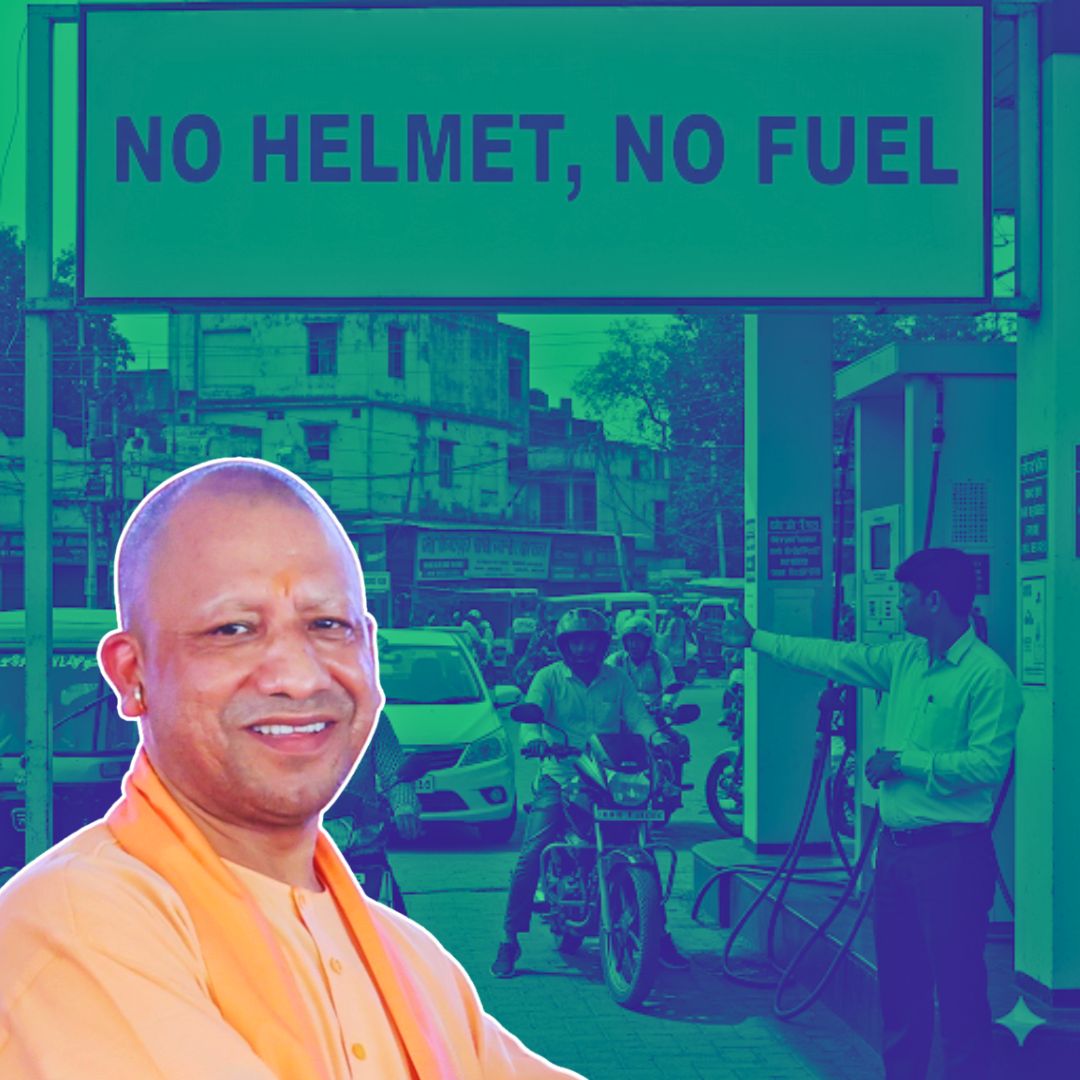The Government of Uttar Pradesh will launch a state-wide road safety campaign titled ‘No Helmet, No Fuel’ from September 1 to 30, aimed at reducing fatal road accidents involving two-wheeler riders. Petrol pumps across the state will be directed not to provide fuel to anyone not wearing a helmet.
Officials say the initiative seeks to cultivate responsible road behaviour and save lives in a state that consistently records some of the highest rates of traffic fatalities in India. While advocates welcome the bold approach, concerns remain about practical implementation and the burden placed on fuel station staff.
A Statewide Effort to Save Lives
The Transport Department has confirmed that the campaign will be rolled out across all districts of Uttar Pradesh, in collaboration with local police and petrol pump associations. During this one-month drive, strict monitoring of compliance will be carried out, with daily reviews in high-risk zones such as highways and urban junctions.
Speaking to reporters, a senior transport official said: “This is not just about stricter enforcement; it is about making road safety non-negotiable. Wearing a helmet is a basic precaution that can prevent major injuries and fatalities. Through this campaign, we hope to send a strong message about accountability.”
Statistics underline the urgency. Data from the Ministry of Road Transport and Highways reveals that Uttar Pradesh annually records thousands of road accident deaths, with a significant share involving two-wheelers. In many cases, neither the rider nor the pillion was wearing a helmet. Authorities believe the campaign will create constant deterrence and ensure riders treat helmets as essential, not optional.
Why Helmets and Enforcement Matter
India’s road safety record continues to be among the worst globally, with two-wheeler accidents contributing significantly to the numbers. Medical experts note that helmet use drastically reduces the severity of head injuries in the event of a crash. In contrast, lack of helmets often turns survivable accidents into fatal ones.
While the ‘No Helmet, No Fuel’ campaign is not entirely new — other states have attempted similar measures in the past — Uttar Pradesh’s large population and high accident rate make the initiative particularly critical. Previous awareness campaigns in the state focused on sensitising commuters, but officials observed limited change in rider behaviour. By directly linking helmet use with access to fuel, this new drive intends to create a tangible, everyday consequence for violations.
Still, not everyone is convinced. Some citizens argue that petrol station staff may find it difficult to enforce the rule without disputes arising. Others warn that riders may quickly wear helmets at fuel stations but remove them immediately after, undermining the campaign’s purpose. Civil society members therefore stress the importance of parallel awareness campaigns, rather than enforcement alone.
The Logical Indian’s Perspective
We believe Uttar Pradesh’s ‘No Helmet, No Fuel’ campaign is a strong, life-saving intervention—one that treats road safety as a shared responsibility. Every family torn apart by a preventable road accident is a reminder that wearing a helmet is about valuing life, not following a law reluctantly.
At the same time, it is important that enforcement is handled sensitively to avoid unnecessary conflicts at petrol pumps. Just as vital is ensuring that such campaigns are backed by long-term awareness drives, proper police support, and community participation.











